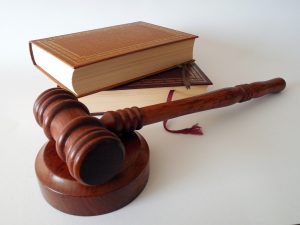 In Massachusetts divorce or child custody cases, a party may ask the Court to appoint a Guardian Ad Litem (GAL) to investigate, make recommendations and offer solutions that would be in the “best interests of a child(ren)” regarding custody, parenting plans, and relocation of the minor child(ren).
In Massachusetts divorce or child custody cases, a party may ask the Court to appoint a Guardian Ad Litem (GAL) to investigate, make recommendations and offer solutions that would be in the “best interests of a child(ren)” regarding custody, parenting plans, and relocation of the minor child(ren).
A Guardian Ad Litem (GAL) typically starts his/her investigation by reviewing all relevant court documents, court orders, and contacts parties and counsel, as applicable. Next the GAL will likely schedule visits with the parties and the minor child(ren) at the parties’ homes. The GAL will also usually schedule interviews with various third parties (called collaterals) to get more insight into the family’s issues. Examples of collaterals may be extended family members, teachers, day care providers, DCF social workers, doctors, and other individuals familiar with the family.
In addition to interviews with the parties, the childr(ren), and collaterals, the GAL will review any documentation that will assist in his/her investigation. Examples of documentation that a GAL may review are educational records, medical records, police reports, and Department of Children and Family (DCF) records.
In some cases, the GAL may find it necessary to speak to and review the child’s therapy records. In these cases, the Court must appoint a second GAL to determine whether it is in the child’s best interest to allow the second GAL to speak to the child’s therapist and review the child’s therapy records. The reason is that even if the parties have legal custody of the child, the parties cannot waive their child’s therapeutic privilege
Once the GAL finishes his/her investigation, the GAL is required to file the GAL report with the Court. The GAL report is an impounded document, not available to the public. The Court may in some cases allow counsel for the parties to receive a copy of the GAL report.
While the parties may have the opportunity to review the GAL report, the parties are not permitted to receive a copy of the report. A GAL report contains the details of his/her investigation, including the scope of the appointment, a summary of the persons interviewed, a summary of the documentation reviewed, recommendations and possible solutions on the issues within the scope of appointment.
While a GAL’s report and recommendations may carry significant weight in the Court’s determination on the contested issues, the recommendations are not binding. The GAL and the GAL’s report are subject to cross-examination and impeachment at deposition and trial, if applicable.
When a GAL is requested by a party, the court will decide who will pay the GAL’s fee. Usually, one or both parties pay the GAL’s fee.
If one or both parties are unable to pay for the GAL due to limited financial resources, the Court may assist. In that situation, the court can order that the Commonwealth of Massachusetts pays for the GAL’s fees. The judge can also order the Probation Department to conduct a limited investigation in place of a GAL if the court’s funds are too limited to afford a full GAL.
It is important to know when to request a GAL and if their services will benefit your divorce or child custody case. For exceptional assistance with any aspect of your divorce or family law matter, contact the knowledgeable and experienced attorneys at Karpenski & Schmelkin, Divorce and Family Law Attorneys for more information.